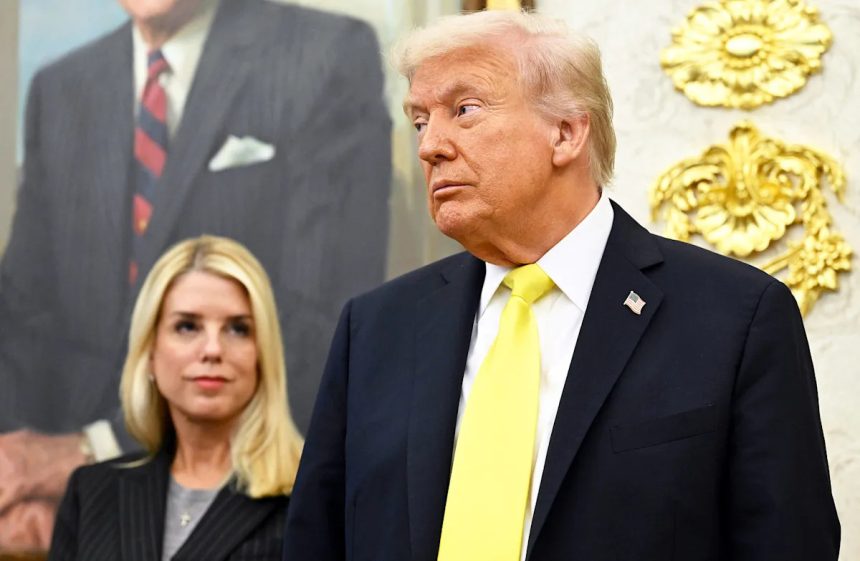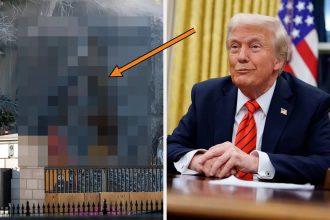Donald Trump hosted an event in the Oval Office last week that was bizarre, even by his usual standards. Over the course of roughly an hour, the public saw the president stand alongside the nation’s three most powerful federal law enforcement officials — Attorney General Pam Bondi, Deputy Attorney General Todd Blanche and FBI Director Kash Patel — and heard him talk about the political enemies he wanted them to pursue.
But if that weren’t quite enough, about halfway through the White House gathering, Trump also made an unscripted, offhand comment that went largely overlooked at the time.
After whining about the FBI’s court-approved search of Mar-a-Lago and peddling a variety of false and familiar claims about his classified documents scandal, the Republican said, “I have a lawsuit that was doing very well, and when I became president, I said I’m sort of suing myself.”
He quickly added, “I don’t know, how do you settle the lawsuit? I’ll say, ‘Give me X dollars,’ right?”
The comments went largely unremarked, although they’re suddenly relevant anew. The New York Times reported:
President Trump is demanding that the Justice Department pay him about $230 million in compensation for the federal investigations into him, according to people familiar with the matter, who added that any settlement might ultimately be approved by senior department officials who defended him or those in his orbit.
The Times’ report, which has not been independently verified by MSNBC, added that this situation “has no parallel in American history.”
It’s an important detail. As bewildering as this might seem, we’re dealing with a dynamic in which federal officials pursued cases of alleged misconduct against a then-former president. The evidence was serious enough that the then-former president faced two federal criminal indictments and was charged with several felonies.
The defendant pleaded not guilty and mounted a defense, right up until 49.8% of American voters decided to return him to the White House, at which point the criminal cases effectively evaporated.
A year later, that former criminal defendant has seized control over the same Justice Department that tried to hold him to account, and if the Times is correct, he wants to pay himself roughly $230 million because he believes he’s entitled to the taxpayer money as repayment for the trouble he endured as a result of his own alleged crimes.
Will such a gambit succeed? The Times’ report added, “According to the Justice Department manual, settlements of claims against the department for more than $4 million ‘must be approved by the deputy attorney general or associate attorney general,’ meaning the person who oversees the agency’s civil division.”
The deputy attorney general, it just so happens, led Trump’s criminal defense team before he was tapped to lead the DOJ. What’s more, the chief of the department’s civil division, Stanley Woodward Jr., also represented people in Trump’s orbit, including a Trump co-defendant and Patel (before the latter was confirmed to lead the FBI).
Bennett Gershman, an ethics professor at Pace University, told the Times, “What a travesty. The ethical conflict is just so basic and fundamental, you don’t need a law professor to explain it.”
He added, “And then to have people in the Justice Department decide whether his claim should be successful or not, and these are the people who serve him deciding whether he wins or loses. It’s bizarre and almost too outlandish to believe.”
A Justice Department spokesperson told the Times that officials will “follow the guidance of career ethics officials.”
The attorney general — who also, incidentally, worked as a Trump defense lawyer — fired the Justice Department’s top ethics adviser in July.
This article was originally published on MSNBC.com









